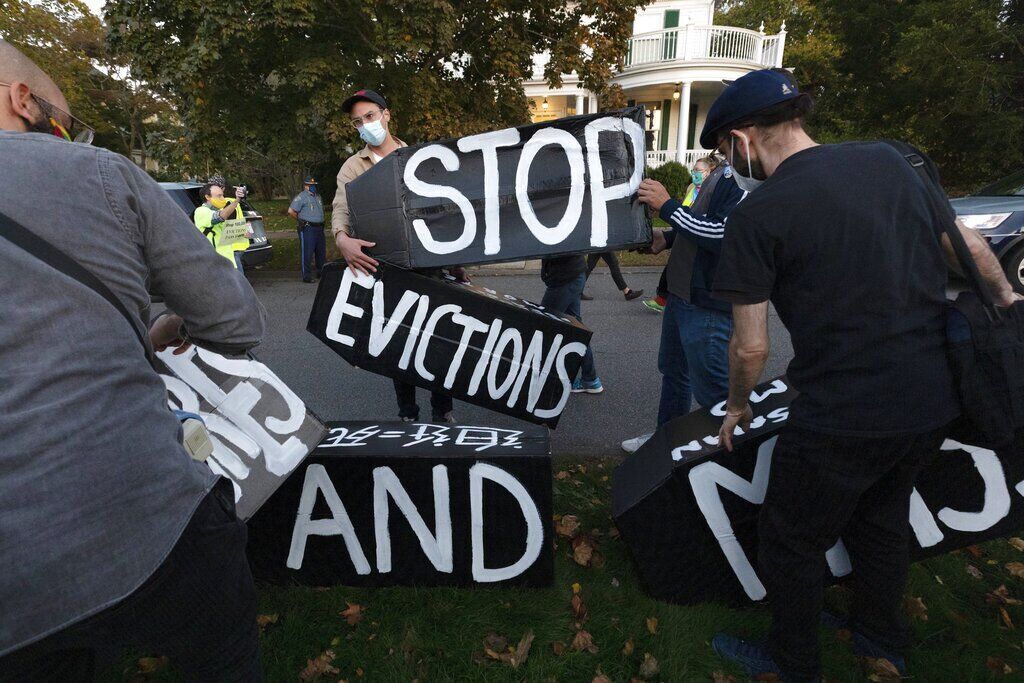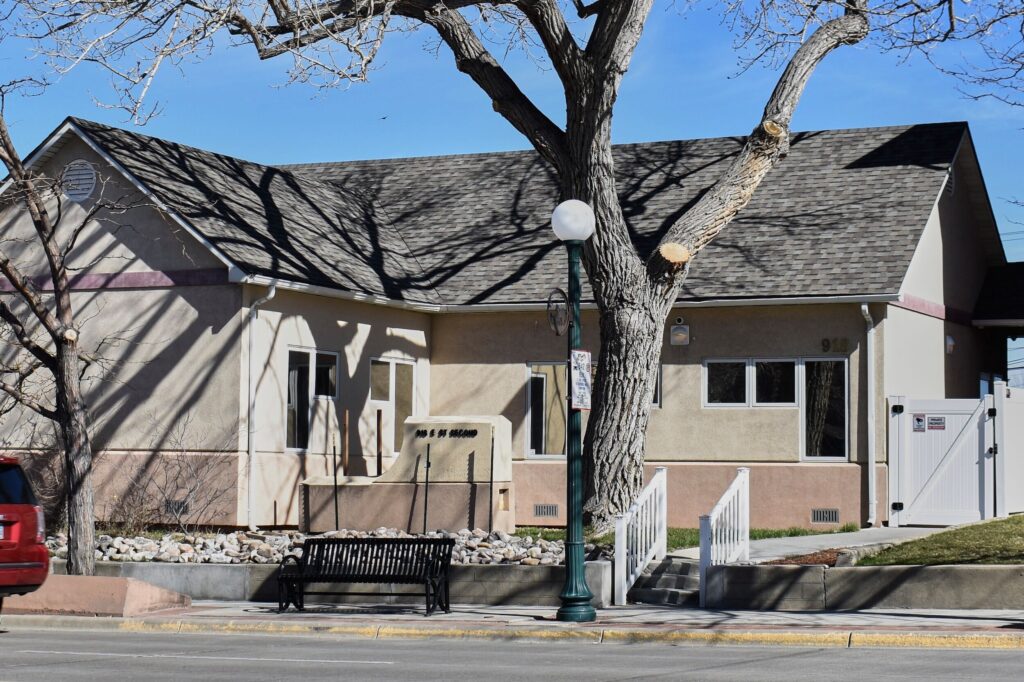Colorado could soon require mediation before eviction for tenants on government financial assistance

At the beginning of the COVID-19 pandemic, Samantha Hudson and her two daughters were living on just $400 a month from the Temporary Assistance for Needy Families (TANF) program. Unable to keep up with her rent and facing threats of eviction, Hudson moved out of her home and onto the streets.
Hudson said her family was forced to live in a car and a tent, as her mental health plummeted and she eventually turned to drug use to cope. Hudson lost custody of her daughters soon after.
Colorado lawmakers are trying to prevent people like Hudson from being evicted with House Bill 1120. If passed, the measure would require mediation between landlords and tenants before landlords can file for eviction – if the tenant receives certain financial assistance.
If an eviction is ordered, the bill would also give tenants 30 days to leave the property instead of the current 10 days.
“If I would have had a chance for mediation and a lawyer, I would have had a good chance of keeping my place, my belongings and my girls,” Hudson said while testifying in support of the bill Tuesday. “If this bill gets passed, it will help out so many people in need.”
Around 38,560 evictions occur in Colorado each year, according to state estimates. Under the bill, approximately 2,912 of the people facing eviction annually would be eligible for these new protections.
The eviction protections would apply to tenants who receive Supplemental Security Income, Social Security Disability Insurance or cash assistance through TANF. The bill would not apply to tenants of landlords who have fewer than five single-family homes or fewer than five total units.
Mediation would involve a landlord and tenant meeting together with a neutral third party to discuss a voluntary settlement.
Proponents of the bill said mediation in eviction conflicts can often lead to the landlord agreeing to let the tenant stay, with solutions including setting up a payment plan, exchanging services, or forgiving late fees. If they still want the tenant to leave, it can result in the landlord and tenant agreeing on a voluntary move-out date without filing for eviction and hurting the tenant’s rental record.
“When parties come together before they are adversaries in a court case, they are often capable of reaching agreements that serve both sides,” said Carol Kennedy, a housing attorney at Colorado Poverty Law Project. “Allowing for mediation will help assure that landlords are made whole, that tenants avoid the ‘scarlet letter’ of an eviction court record, and, in turn, this also relieves the administrative burden on our court system.”
The Colorado Poverty Law Project supports the bill, in addition to the ACLU of Colorado, Colorado Center on Law and Policy, Colorado Children’s Campaign, Colorado Coalition for the Homeless, Colorado Cross-Disability Coalition, Disability Law Colorado, League of Women Voters of Colorado, Mental Health Colorado and New Era Colorado.
Groups opposed to the bill include the Colorado Apartment Association, Colorado Bankers Association, Colorado Association of Home Builders, Colorado Concern, Colorado Springs Chamber of Commerce, Denver Metro Chamber of Commerce and Rocky Mountain Home Association.
Opponents argued that the bill would make the eviction process too long, ultimately dis-incentivizing landlords and developers from investing in Colorado’s rental industry.
“It’s just too long of a track,” said Drew Hamrick with the Colorado Apartment Association. “The owner of a rental house has to have a reasonably priced, reasonably timed and reasonably predictable way to get the property back if there’s a default. Otherwise, they won’t loan the property out in the first place or they will do so at a much greater cost.”
Under the bill, the mediation would need to be scheduled within two weeks of the eviction notice, when possible. Tenants would have to be informed of their right to mediation by the landlord in the eviction notice and tenants would not be responsible for the costs of mediation.
The 20-day extension for qualifying tenants to leave the property could be voided, but only in cases of “substantial” lease violations.
Bill sponsor Rep. David Ortiz, D-Centennial, said extending the time before tenants are forced out of their rental home is essential, arguing that the current 10-day time limit does not give them enough time to find new housing. This is especially true for tenants with disabilities, he said.
Only 5% of newly constructed multifamily housing units are required to be accessible to people with disabilities, based on federal standards. A 2011 study found that less than 5% of housing in the U.S. is accessible for people with moderate mobility difficulties and less than 1% is accessible for wheelchair users. The bill’s protections would apply to recipients of Social Security Disability Insurance.
“This bill is helping those that need it the most,” Ortiz said. “To expect someone to find housing in 10 days puts an undue burden on them and you’re setting them up for failure. You’re setting them up to be unhoused.”
The bill – also sponsored by Rep. Junie Joseph, D-Boulder – advanced through the House Judiciary Committee on Tuesday. Lawmakers voted, 9-4, for the bill on party lines.
Republicans stayed mostly silent while voting against the bill, though some brought up concerns about reducing the housing stock while pressing witnesses earlier in the committee hearing.
Rep. Matt Soper, R-Delta, the only opponent to comment on his vote, said he is “not quite there yet today.”
The bill will next be sent to the House Appropriations Committee for further consideration. A hearing date has not yet been scheduled.













